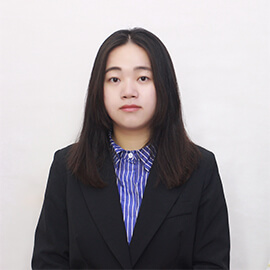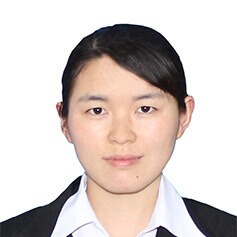Changzhou – It is a prefecture-level city in southern Jiangsu province of China.
Why Choose Changzhou
Get a Question?
Do not hesitage to give us a call. We are an expert team and we are happy to talk to you.
+ 0086-25-58895599
info@scholarshipchina.com
Changzhou Transportation
1、 Changzhou bus rapid transit system
Bus Rapid Transit (BRT) in Changzhou opened on January 1, 2008, and has over 100 routes, covering most urban areas of Changzhou. BRT is very convenient for travellers and the citizens. Use of the Bus Rapid Transit System costs only one yuan. The BRT has the following specifications: low emission vehicle technology, real-time next bus information display, high-quality passenger service at bus stations as well as station access for disabled persons.
2、 Changzhou train
Located just south of the Chang Jiang (Yangtze River), Changzhou is situated on the main Shanghai-Beijing rail line. The station was completed in 2011 and is located in the north of Changzhou in the Xinbei district (Changzhou North Station). Changzhou is also one of the main stops on the busy Shanghai-Nanjing route, with two stations located in Changzhou (Changzhou station and Qishuyuan station). They operates both ordinary and high speed trains to/from Beijing, Shanghai, Nanjing, Suzhou, Hangzhou, Hefei, Changsha, Wuhan, Qingdao and so on.
3、 Changzhou airport
Changzhou Benniu Airport is located in Xinbei District,approximately 15 km (9.3 mi) from the city center. There are flights to Beijing, Guangzhou, Chengdu, Shenyang, Kunming, Harbin and Dalian, regional flights to Tapei, Taiwan and international flights to South Korea, Thailand, Vietnam, Indonesia and Japan.
Recommended Universities
xuezhicheng
111111111111111111111111111111
Khem
WOULD LIKE TO APPLY THERE
vayubahtouray
I am interested in studying in China on full scholarship but all my application documents are not yet available my police clearance and medical clearance is still not available. How can you help me process my application please
Elsie
this is the best city I have ever been
JoeAmin
I want to study Chinese language but full scholarship in changsha
Changzhou Weather
1、 Changzhou weather
Changzhou enjoys a humid monsoon climate at the transition area between subtropical and temperate zones. The four seasons varies greatly during a year. Spring and autumn are moderate, while summer and winter go extremely opposite. Summer is torrid, but gathers majority of the rainfall. The plum rain period lasts from June to July. Also during the summer, rainstorm and typhoon are more likely to happen.
Recommended Universities
John Smith
Cras justo odio, dapibus ac facilisis in, egestas eget quam. Duis mollis, est non commodo luctus, nisi erat porttitor ligula, eget lacinia odio sem nec elit.
Jenifer Janeth
Nulla vitae elit libero, a pharetra augue.
Changzhou Cuisine
1、 Small Steamed Buns
Small steamed bun (小笼包) is a type of traditional stuffed bun popular in Changzhou. The nice-looking buns are small in size, with a thin dough skin and lots of filling. The buns are also filled with soup, tasty and refreshing. The skin is made of flour dough and it is so thin that a freshly steamed bun looks semitransparent. The skin is elastic but will not stick to your teeth. There are various types of fillings, with pure pork being the most popular choice. Sometimes, crab meat, crab yolk or shrimp balls are added into pork as the filling.
2、 Horseshoe cake
Horseshoe cake (马蹄酥) is the famous local snack of Changzhou. Such kind of snack is made of the high-quality flour, red beans and so on. The auxiliary materials are the sticky rice. This snack is thinner in the middle and thicker around, and looks like the horse hoof. The characteristics are crisp, soft, savory and tasty. Matisu is the palace snack originally in Tang dynasty. It is made in the shape of a horseshoe, so it is called horseshoe cake.
Recommended Universities
John Smith
Cras justo odio, dapibus ac facilisis in, egestas eget quam. Duis mollis, est non commodo luctus, nisi erat porttitor ligula, eget lacinia odio sem nec elit.
Jenifer Janeth
Nulla vitae elit libero, a pharetra augue.
Changzhou Attractions
1、 China Dinosaurs Park
It is a large dinosaur theme park in the Universal Dinosaur Town, consisting of a dinosaur museum and six entertainment areas with various recreational facilities. Tourists can not only learn more about dinosaurs in the museum, but can relax themselves in the exciting activities.
2、 Tianmu Lake
The lake is located at the north of the Tianmu Mountain, one hour's drive from the downtown Changzhou. It is formed by the construction of reservoirs in this region. The lake perfectly complements the surrounding natural sceneries.
3、 Tianning Temple
Built in the Tang Dynasty (618-907), the temple has more than 1,300 years' of history being one of the most famous Buddhist sites in Southeast China. The Emperor Qianlong of the Qing Dynasty (1644-1911) visited Tianning Temple for three times. Apart from halls and towers, the brick carvings of the Five Hundred Disciples of Buddha and twelve jade Buddhas add much luster to the temple.
Recommended Universities
John Smith
Cras justo odio, dapibus ac facilisis in, egestas eget quam. Duis mollis, est non commodo luctus, nisi erat porttitor ligula, eget lacinia odio sem nec elit.
Jenifer Janeth
Nulla vitae elit libero, a pharetra augue.
Changzhou Useful Tools
Recommended Universities
John Smith
Cras justo odio, dapibus ac facilisis in, egestas eget quam. Duis mollis, est non commodo luctus, nisi erat porttitor ligula, eget lacinia odio sem nec elit.
Jenifer Janeth
Nulla vitae elit libero, a pharetra augue.
- We are here to help:
-
 Arina
Arina

WeChat
-
Phone
+8618994068961
-
Email
info@scholarshipchina.com
-
Whatsapp
+8617721535950
-
-
 Dean
Dean

WeChat
-
Phone
+86 13218000923
-
Email
info@scholarshipchina.com
-
Whatsapp
+8617721535950
-
-
 Tracey
Tracey

WeChat
-
Phone
+86 17798521652
-
Email
info@scholarshipchina.com
-
Whatsapp
+8617721535950
-
